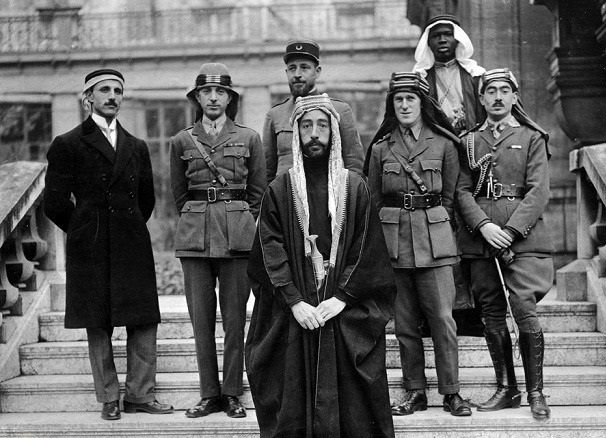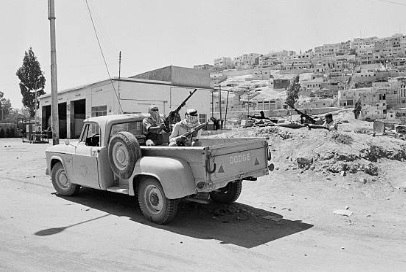The history of relations between Jordan and the Zionist regime

| The features of political geography, proximity to British policies and some historical reasons have caused Jordan to face bottlenecks and problems in adopting foreign policy. |
Mehr News Agency, International Group: During the Islamic Republic of Iran’s punitive attack on the Zionist regime, Jordan, along with America, England and France, tried with missiles and drones of Iran to counter. Taking into account some previous positions of Jordan and also the words that were exchanged after this event in the meeting between the foreign ministers of Tehran and Amman in New York City, it shows that the government of the Kingdom of Jordan has received the message of the internal opposition and knows that the insidious actions of the regime What costs does the Zionist have for accompanying Jordan?
The new attention to Jordan’s role in regional equations has once again faced the public opinion of regional countries with this question: In the short history of relations between Jordan and the region, what should be done? and what perception should we have of Jordan’s political approaches? In response to this question, it is necessary first of all to address the issue that Jordan under the rule of Abdullah II has differences from the Jordan of his father, King Hussein, and this country is now in
A history, a special occasion
The study of ups and downs in the history of Jordan shows the importance of the role of foreign factors in the critical situations related to the destiny of this country.
The Hashemi family, who refer to themselves as the Quraish family and controlled Makkah and Hijaz for a long time, have a long and distant relationship with Britannia have had. Sharif Hossein, known as Hossein Al-Hashemi, gained more power after the two important events of World War I and the destruction of the Ottoman Empire. His sons, Sharif Ali, Abdullah and Faisal, gained a lot of power in Hijaz, Iraq and Jordan in alignment with British policies. But Iraq was the land of execution and removal of power of the Hashemites, and later only one of them, named Abdullah I, gained power in Jordan. After him, his son Talal bin Abdullah and after him King Hussein took over the government and now, King Abdullah II, the son of King Hussein, is recognized as the king of Jordan. It will be.
Although the Hashemite family had failed the Saudi family in the path of complete control of Mecca and Medina, Britain did not give up cooperation with them and in 1921 took control The self-governing half of the eastern Jordan River or “Fra-Jordan” was handed over to this family. After World War II, Abdallah bin Al-Hussein, Emir of Far Jordan, was called the first ruler of the “Hashemi Kingdom of Jordan”. Since that time, Jordan had certain geographic restrictions and bottlenecks, and in 1965, land was exchanged between Jordan and Saudi Arabia. In this way, Jordan ceded part of the desert areas in exchange for one of the coastal areas near Aqaba. In the war of June 1967, Jordan along with Syria, Egypt and Iraq participated against Israel. During this war, the West Bank and East of Jerusalem were occupied by Israel and its western part was already occupied by the Zionist regime. In 1988, Jordan renounced all its claims to the West Bank.
In 1994, Bill Clinton President of the United States, between King Hussein of Jordan And the Israeli Prime Minister Yitzhak Rabin sat down and encouraged them to sign the peace treaty that later became the peace between Israel and Jordan or the Wadi Treaty. text-align:justify”>Carriage read. Thus, after Egypt, Jordan is the second Arab and Islamic country that has established normal relations with the Zionist regime.
Jordan’s main challenges
Subjects such as the arrival of more than two million Palestinian, Syrian and Iraqi refugees to Jordan in the past few decades, the Black September event or the serious conflict between Jordan and the organization Liberator of Palestine (PLO) and accompanying occasionally Jordan with Syria and Iraq in Arab movements, shows some sinusoidal turns in Jordan’s foreign policy because Jordan is geographically located in an unstable region with many conflicting interests. This country must have complex relations with neighboring countries, great powers and regional actors. Maintaining a balanced approach allows Jordan to avoid escalating tensions and protect its security. But in general, Jordan’s policies about Palestine have been criticized many times under the title of compromise attitude.
Jordan, next to the Gulf of Aqaba, does not have a dynamic and powerful economy, and unlike the Persian Gulf countries, it does not have high financial power. Jordan relies heavily on energy imports to supply its domestic energy needs. Energy security is an important concern, especially considering the limited natural resources and vulnerability of the country to supply disruptions. After all, in terms of fresh water resources, Jordan is one of the poorest countries in the world. Meanwhile, the refugee crisis has brought with it challenges related to social services, economic pressure, security risks and demographic effects for Amman. Managing the refugee population is a geopolitical concern for Jordan that has implications for regional stability and internal cohesion.
Challenges of the Jordanian King – English
Abdullah bin Hussein, born in 1962, came to power after the death of his father in 1999. He has English ancestry on his mother’s side and completed his secondary and university education in England and America. King Abdullah II has close relations with the British Army and in 1980, he became a student of the Royal Officers College Sandhurst and entered the Royal Cavalry with the rank of second lieutenant. King Abdullah has the rank of colonel in the Light Cavalry Armored Regiment and is the deputy commander of the British Royal Cavalry. Of course, he also studied for a while at the Faculty of International Relations at George Town University.
Both King Hussein and his successor, King Abdullah II, the complexities of relations between Jordan and Israel have been investigated differently based on the geopolitical perspective and regional dynamics. King Hussein, who ruled for 47 years from 1952 to 1999, sought a balance between domestic and regional interests and engaged in secret negotiations with Israel. /span> and finally signed the peace treaty in 1994. King Abdullah II has continued his father’s legacy by maintaining diplomatic relations with Israel. However, his reign has seen tensions, particularly during periods of heightened conflict in the Israeli-Palestinian conflict. King Abdullah II is also against the policies of Israel, especially regarding the situation of Bayt Al-Maqdis and the treatment of Palestinians have expressed concern.
Malek Hussein took a cautious approach towards Iran during his rule. King Hussein sought to maintain a balanced approach in his relations with Iran. He was cautious in dealing with the Iranian government and often prioritized Jordan’s alliance with the Arab countries of the Persian Gulf and Western powers. During the reign of King Hussein, Iran went through important political changes, including the Islamic Revolution in 1979, and after that, the balance of regional power changed, and Iran as A major actor appeared in the region.
King Hussein, the former king of Jordan, was among the supporters and regional comrades of Mohammad Reza Pahlavi. He also supported Saddam’s attack on Iran. But King Abdullah II came to the conclusion that maintaining regional stability and cooperation depends on close relations with Iran, and despite the clear opposition of Israel and America, in the year He traveled to Tehran in 2001.
The events of the past six months, especially the intelligent reading of the Islamic Republic of Iran about how to support the cause of Palestine, Jordan and the entire region have faced a new reality and the evidence They show that Jordan also understands the power and seriousness of the Islamic Republic of Iran in facing the Zionist regime’s excesses, and after this, it will have a clearer understanding of the regional situation of Iran and Palestine.







